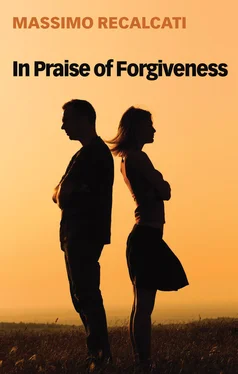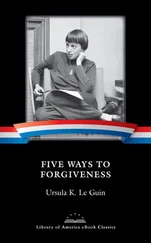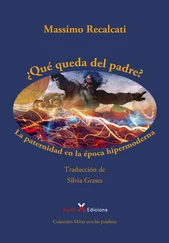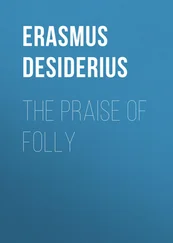This maniacal acceleration of time makes the loving promise that it be ‘everlasting’ laughable, naïve, even stupidly superstitious. Bonds are shredded by the logic of the New, which, in increasingly short time frames, makes the Same a leftover from the past that must be replaced as quickly as possible. The simple epidemiology of relationships demonstrates this: human beings are struggling more and more to remain in one bond for any length of time. Separations abound, married or long-term couples leave each other with increasing frequency in order to create new bonds or to live out their own freedom in a more carefree manner. It is a sign of the times. As Bauman rightly asserted, ours is an age of liquid loves. 14This is the age of libertinism as an unprecedented duty of the Super-Ego. In the place of the symbolic pact that binds two lovers, of which the marriage bonds are the greatest symbol, a disenchanted cynicism establishes itself, one that views every bond as time-limited, destined to spoil and be exchanged for a new one. We search for the New to break the routine, the boredom of the familiar, the anonymous ordinariness of our lives. We search for the spice of falling in love in order to add flavour to our desire-less lives. The growing refusal of the symbolic pact of marriage, to which living together is increasingly preferred, is a telling sign. Couples unite and fall apart without passing through the Other, without pondering the symbolic value of the pact. At play here is a purely pubescent view of desire that wants to avoid any assumption of responsibility. The presence of the symbolic pact with the Other would kill the freedom and vitality of desire. The disarming consequence of this new libertine ideology is the decline of the loving bond into little more than the stuff of gossip about summer love affairs. The ideological distortion of love is evident and it gives rise to a refrain that never changes: the intensity of loving passion stands in relentless opposition to the length of the relationship . The time spent together would fatally extinguish the flame of desire, which would supposedly always require the storm of emotion that is by its very nature profoundly anti-institutional. The merry-go-round of bonds makes a mockery of the expectation of eternity contained within the promise made by lovers. However, psychoanalytic practice is stating the obvious when it finds that the compulsive search for the New is not in any way an expression of freedom, but a new slavery, the result of an ideological social injunction (‘Enjoy!’) to which the subject must radically submit.
Love as Resistance to the Libertine Worship of the New
The demand accompanying every real love, notably that it be everlasting, resists the nihilistic tendencies of our time. It upholds, in an old-fashioned way, the assertion that the loving bond is not destined to dissolve over time, but that in that bond time appears as a sudden and powerful figure of the eternal. 15It does not follow the current trend, it does not deride the promises made by lovers, and it does not want to reiterate the relativity of every loving bond in a politically correct way. Here we have love as an erotic force, a manifestation of Eros, the force of the bond according to Freud, a force that resists time and that introduces time to the single experience of the absolute conceded to human beings: that of the loving bond as a bond with a unique Other, an Other that is irreplaceable, impossible to reproduce. Love that lasts reveals the entirely illusory nature of the Super-Ego’s injunction of the New, demonstrating to us how the most authentic experience of the New can only take place within the Same. The psychoanalyst sees this every day: the New as an (illusory) cure for the bored repetition of the Same always leads life back to the same lack of satisfaction. This is what patients caught in the spiral of continually changing partners complain about. Each time they describe the new love as ideal, full of promise, different and unique, each time in just a short, if not incredibly short time, they find it to be disappointing, inadequate and sadly identical to all the others.
Love that lasts resists the corrosive urge of enjoyment as an end in itself and refuses the illusion that happiness lies in the New, in what we do not possess. Thus, love is the New which, rather than attacking the bond, transforms itself into a bond. It does not experience joy just for a moment, but obstinately demands its infinite repetition, because it is only through repetition that it can show the true face, the only credible face of the New. According to Heidegger, the force of the loving bond therefore becomes similar to that of a work of art: it allows a refounding of the openness to the world. 16This is why lovers live in a world that is no longer the same one as before, that of the One on their own, because this world is lived in a brand new way as a Two. It is, therefore, a new opening onto the world, a world viewed not from the point of view of one alone, but of the Two. 17It is only this new perspective that allows us to experience the New in the Same, as happens every time the spring wind blows into Milan exposing the blue peaks of the Alps every year at the end of every winter. It is the Same wind each time every year, and each time every year it is new. It is the same surprise that accompanies the Two in seeing mushrooms spring up on forest floors, or observing the portulaca flowers on the terrace of the house by the sea resist the force of the wind. 18 Each time the Same and each time entirely New. Is this not the Same enchantment that accompanies a life spent together in lasting love, in love that resists the empty siren song of the New, even in its most modest ordinariness? Is it not her that I always love as Other in being herself? Is the same day not a New one in light of love? Is it not what I have that, thanks to love, becomes New each time? Is it not love that reveals the repetition of everyday things to be pure poetry, like the strength of the image that does not pass, that is suspended and sits outside of time? The Morandiesque attention to things in the world that is found in the most recent poetry by Francesco Scarabicchi is one of the highest and most intense glorifications of the shared time of things bending towards the eternal. 19This is why when Lacan dedicated one of his most intense and original Seminars to the subject of love he decided to call it Encore , again, again, encore . 20‘Again’ is, in essence, the basic form taken by the demand for love. Again, again, the Same again, again like today, again like now, once more, again. To want the Same again, the Same that is never enough, that you want to drink because it quenches thirst and, at the same time, feeds a new thirst that is never quenched, but that grows precisely as you try to quench it without every truly managing. It is only in the gift of life that there is a growth of the self, a strengthening and expansion of life that is able to live the absolute exposure to the desire of the Other. This is one of the decisive theses put forward by Saint Augustine: love is not cupiditas [lust, greed], it is not the greedy consumption of the Other, but the gift of oneself that causes those who give it to grow. 21Is this not deep down the strange substance from which love is made? A substance that the more it is given, the more it concedes, the more it is consumed, the more it enriches, grows and expands. This is why the young Hegel wanted to carve all of the mystery and power of love into the words Shakespeare’s Juliet says to her Romeo: ‘The more I give to thee, the more I have.’ 22
1 1. T. W. Adorno, Minima moralia: Reflections on an Offended Life, Verso, London 2005, pp. 181–2.
Читать дальше











